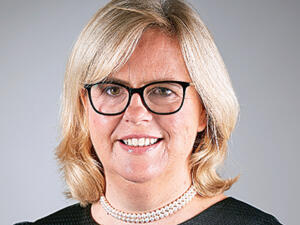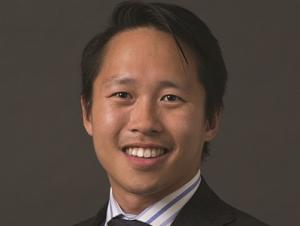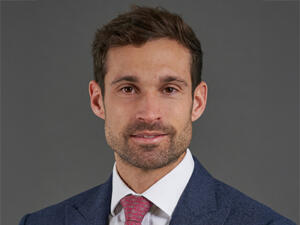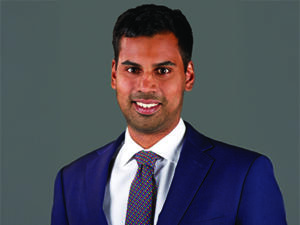How long will Kirkland resist the UPC’s courtrooms?
Kirkland & Ellis' London patent litigation team can look back on an extremely successful year, having been involved in many important SEP cases. In UPC cases, the team tends to pull the strings in the background and does not have its own UPC litigation team. The strategy is not without risk for the team's core business.
20 December 2024 by Mathieu Klos
The same rumour has been circulating in the London patent community for years: Nicola Dagg is jumping ship to the next US law firm. But the London patent team’s frontwoman is still at Kirkland & Ellis. Ever since Dagg’s team moved into the Kirkland offices in London’s high-rise The Gherkin in autumn 2018, another rumour has been circulating that the junior partners will not stay. Financial expectations and pressure at the firm are said to be so high that the juniors would likely look elsewhere. But with a few exceptions, they are still there.
Steven Baldwin, Daniel Lim and Jin Ooi were part of the starting team and are important pillars of the practice, present in the firm’s major cases. And there has been no shortage of these since the Unified Patent Court opened its doors. The Kirkland team is particularly omnipresent in patent battles for mobile and telecommunications applications. Their strong presence among Chinese implementers such as Xiaomi and Lenovo is one reason for this. But the team is also well connected to US tech giants such as Apple and Intel, as well as Korean mobile communications giant Samsung — all are implementers.
Strong in its home market
In the second important sector for patent disputes — the pharmaceutical sector — the team has deep ties to patent holders, namely the originators. Pfizer is a long-standing client. Recently, Nicola Dagg and Jin Ooi successfully defended Astella against the revocation attack by Accord, Sandoz and Teva concerning the patent for Astella’s major prostate cancer drug Xtandi. The UK High Court dismissed a nullity action. The generic drug manufacturers are not allowed to launch their copycat products on the UK market.
- Jin Ooi
- Nicola Dagg
- Daniel Lim
“We had a strong year for our clients and were successful in all our trials and appeals with big wins for Astellas, Intel and for Xiaomi against Panasonic in the interim licence case,” Nicola Dagg told JUVE Patent. “Lenovo also emerged as the overall winner against InterDigital in the market-leading FRAND appeal at the UK Court of Appeal.”
Driving UK FRAND law forward
The team’s success in London is naturally assessed differently by its closest competitors. In the important SEP cases, however, the team has indeed been on an upward trajectory. It played a key role in the recent proceedings that significantly developed UK FRAND law.
This undoubtedly includes the work for Lenovo concerning a global licence agreement for InterDigital’s cellular portfolio. The dispute culminated in the UK Court of Appeal’s decision in July. This decision cemented London’s global reputation as a court for calculating FRAND rates.
Some observers will doubt whether Lenovo emerged as the clear winner here. The court ordered Lenovo to pay a higher licence rate to InterDigital than that ordered by the UK High Court. However, this was still lower than InterDigital’s original demands.
Many observers agree that the Chinese handset maker and the Kirkland partners Daniel Lim, Nicola Dagg and Oscar Robinson had driven the case forward with creative applications.
Not without setbacks
In early October, the firm made a notable win alongside Xiaomi. The world took notice when a Kirkland team led by Dagg, Ooi and Steven Baldwin persuaded the UK Court of Appeal to order Panasonic to grant an interim licence until the court had made a final decision on a FRAND rate for the Japanese company’s global portfolio. This was the first time that a UK court had ordered an interim licence in a patent dispute.
The UK High Court had rejected this. However, the second instance court’s decision overruled this, setting new standards in global patent disputes. Both companies quickly agreed on a global licence. The Unified Patent Court cancelled its first FRAND hearing a few days later.
But even for the successful Kirkland team it is not always plain sailing. The team’s application for an interim licence on behalf of Lenovo for Ericsson’s portfolio recently failed. The UK court must now decide on a cross-licence and a corresponding rate in the main proceedings.
Behind the UPC curtain
The UPC then opened its doors in June 2023. The new court has the potential to reshuffle the playing field in major global patent litigation. The SEP dispute between Panasonic and Xiaomi and between Ericsson and Lenovo are also playing out at the UPC. Both are currently among the most important global disputes over SEP licences.
However, Kirkland must cede the UPC proceedings to continental law firms. The proceedings for Xiaomi were led by teams from Freshfields and Hogan Lovells. A team from Hoyng ROKH Monegier filed the lawsuits of Lenovo subsidiary Motorola against Ericsson. Kirkland has established connections to these and other law firms through other proceedings.
The firm does not see itself in the UPC courtroom
But although Kirkland has offices in Brussels, Paris and Munich but currently, it deliberately refrains from having its own patent litigation team in UPC territory. The firm does not see itself as UPC litigators in the courtroom and instead works with local advisors.
“You have to have an in-depth understanding of local conditions and the judges to do the best for the clients. Kirkland’s clients deserve nothing less,” says Nicola Dagg. “Therefore, we work hand-in-hand with the very best UPC representatives local to the relevant division in the cases. Our job is to develop the overarching strategy and case theory and build the best offensive or defensive case with the best local counsel in the various local and regional divisions and courts.”
Coordinating role
The team also plays a coordinating role in other disputes and agrees the litigation strategy centrally with the clients and other firms. A Kirkland team led by Dagg, Ooi and Peter Pereira took on these tasks in the intense dispute over warehouse robots for Autostore against Ocado. After previous national litigation, the dispute quickly reached the UPC in 2023, where Arnold Ruess, Trevisan & Cuonzo and Dehns took over the representation at the UPC. However, the dispute ended quickly with a settlement.
- Oscar Robinson
- Steven Baldwin
- Peter Pereira
Similarly, a team led by Dagg and Ooi represents Advanced Bionics against MED-EL over cochlear implants in UK proceedings. Kirkland is also involved in the US proceedings and is coordinating the dispute for Advanced Bionics globally. The main representative in the UPC proceedings is the Düsseldorf-based IP boutique Kather Augenstein.
In the second major medical device dispute with Edwards Lifesciences, Meril Life Sciences assigned clear roles. A Kirkland team led by Daniel Lim is conducting the UK proceedings, while Hogan Lovells was given a strong role in the UPC proceedings with other law firms. Meril’s in-house team is managing the global dispute from India.
Highly profitable
This global coordination of such cases is considered extremely lucrative and is the domain of London patent teams in Europe. In many mega-battles, it is they rather than German law firms who pull the strings and set up the global litigation strategies. Such work does not attract high levels of publicity in the courtroom, but rather takes place behind the scenes.
Such behind-the-scenes work is what makes Kirkland so successful
It is precisely this work that makes the London Kirkland team one of the most successful in the UK market. It is well known that the US law firm’s financial expectations of its partners are high. According to the UK publication The Lawyer, Kirkland recently achieved a turnover of $815 million in the London market. JUVE Patent does not know the exact figures of the London IP team’s revenue. But with 16 partners it likely accounts for tens of millions of this. Not all partners are equity partners and not all of them have a strong focus on patent litigation. In addition, the team currently counts 25 associates.
So far, Kirkland has resisted the temptation to bolster its turnover with UPC work instead of handing over the fees to continental law firms. Only one Munich corporate lawyer and one London IP lawyer at the firm are currently seeking UPC admission, probably to give the London team important access to the court’s case management system.
Bucking the trend
As other London patent litigation teams have worked their way into the UPC system in one way or another, Kirkland is deliberately bucking the general trend with this strategy. Since Brexit and the UK’s withdrawal from the UPC project, UK lawyers have not been admitted to the new court. UK patent attorneys admitted to the EPO, on the other hand, can conduct proceedings at the UPC. This has recently led to UK patent attorney firms such as Dehns, J A Kemp or Potter Clarkson already playing a role in UPC proceedings.
International law firms such as A&O Shearman, Bird & Bird, Freshfields, Herbert Smith Freehills, Hogan Lovells, Pinsent Masons or Taylor Wessing are at an advantage because they have patent teams in UPC states and therefore direct access to the court. The UK partners can then work on UPC cases, even if they do not have UPC admission.
Kirkland’s biggest UK competitors, IP boutiques such as Bristows and Powell Gilbert, have been looking for new ways to get their partners admitted to the UPC. The trick is to have an office in a UPC member state and national admission of local lawyers. Bristows, for example, has an office in Brussels, but the most common route for UK law firms is via Dublin.
By opening an office in the Irish capital, Powell Gilbert ensured that all 15 partners had admittance to the UPC and are now also handling cases. Bird & Bird, Bristows, Carpmaels & Ransford, Freshfields, Pinsent Masons and Taylor Wessing also have an office in Dublin. For Kirkland, however, the so-called Irish route to the UPC is out of the question. Although the country has signed the UPC Agreement, it has not yet ratified it.
Taking the risk
Kirkland is adamant that it will not become directly involved as a UPC representative. With increasing competition from US firms encroaching into Europe, this strategy is not without risk. Morgan Lewis, for example, recently hired the founding partner of Powell Gilbert, Tim Powell, with the declared goal of UPC cases.
UPC expertise and presence could become a decisive factor for clients
The idea that the UPC could develop into the most important patent court worldwide makes Europe appealing. And because, so far, the UPC offers better margins in Europe than national proceedings. If the UPC does indeed develop into a key patent litigation hub, UPC expertise and presence in UPC cases could become a decisive factor when companies are choosing which firms to trust to coordinate their major global litigation campaigns.
Pan-European practices such as Freshfields, Hogan Lovells and A&O Shearman expect teams like Kirkland without direct UPC access to be at a disadvantage here in future. Furthermore, these law firms are pushing into the US market in order to take market share away from the established US players.
Holding fast
But Kirkland currently feels secure with its strong presence in London and cooperation with selected continental patent teams. “We feel that model gives our clients the very best overall strategic representation and in-depth understanding of local conditions and judges,” says Dagg.
Kirkland’s London team is therefore keeping a close eye on developments at the UPC, and especially on Germany where it already has an office in Munich — currently home to the busiest UPC division. However, the high profitability expectations of the US law firm and the dominance of the London team are likely to pose two obstacles to persuading top German litigators to switch to US law firms.






